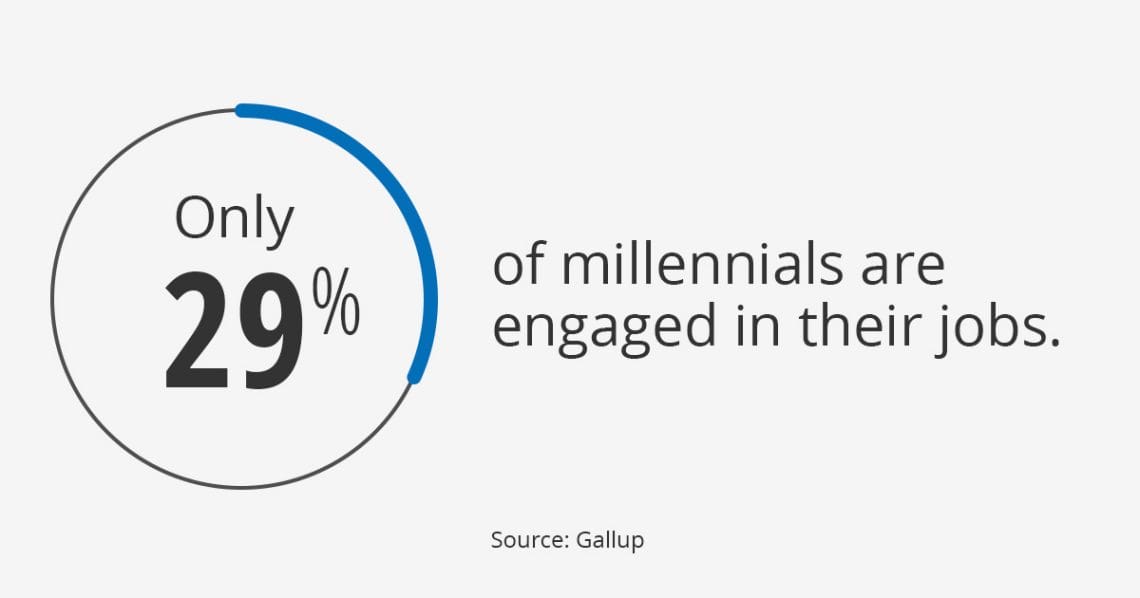
Only 29% of millennials are engaged in their jobs – how can employers improve this?
Millennials are officially the largest generation in the US workforce, and unofficially the most discussed and debated generation.
One of the biggest concerns about millennials is their lack of engagement in the workplace. According to research from Gallup, only 29% of millennials are engaged in their jobs, meaning they are “emotionally and behaviorally connected to their job and company”. Millennials are seeking meaning and fulfillment from their careers – but how do employers provide this?
Let’s take a look at three things millennials seek from employers and how employers can resolve them to improve engagement and retention among millennials.

1. Opportunities for Career Progression
PwC’s survey, Millennials at Work: Reshaping the Workplace, found that “opportunities for career progression” was millennials’ top trait in an attractive employer (ranking higher than “competitive wages/other financial incentives”).
By offering learning and development opportunities – specifically, learning plans tailored to help employees progress in their career – millennial workers will have less incentive to jump ship to another employer in the name of career progression. A learning management system that can perform a skill gap analysis and prescribe learning materials (both formal and informal) based on the identified skill gaps can help.
2. Professional Development
The PwC survey also found that “excellent training/development programs” was listed as the third highest trait in an attractive employer, and that “training and development” was identified as the top benefit sought after by millennial workers.
Excellent training and development goes beyond formal learning and also facilitates social learning. Support your L&D programs with technology that can manage, deliver, and measure both formal and informal learning.
3. Work/Life Balance
Work/life balance is often cited as one of the top desires of the millennial generation. Only 20% of millennials would agree to a promotion if it would negatively impact their personal lives. However, the aforementioned PwC survey also shows that employers appear to be failing on this front, with 28% of survey respondents saying that their work/life balance was worse than they expected before joining their current organization.
Work/life balance can be achieved by offering employees greater flexibility. One of the best ways to increase flexibility in the workplace is to leverage technology. For example, by offering learning on a mobile-enabled LMS, employees are empowered to learn anytime, anywhere.
Stay tuned for our upcoming report on millennials in the workplace for more insights on how to increase engagement and retention among millennial learners.
The Docebo LMS offers social learning, mobile learning, and will soon offer a skills and competencies module to perform skill gap analyses. Start your free 14-day trial today!
